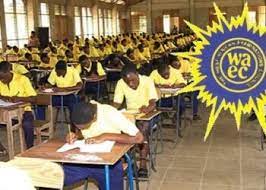After nine months of industrial action, the Academic Staff Union of Universities (ASUU) Wednesday announced a conditional suspension of the strike.
The strike, which started March 23, was occasioned by the federal government’s decision not to honour backlog of agreements it had with the university teachers.
By this, the union said it would keep monitoring the compliance level of the federal government on the agreements reached.
Briefing journalists on the development in Abuja, ASUU President Professor Biodun Ogunyemi, said the decision was reached after its National Executive Council met Tuesday, adding that the Integrated Personnel Payroll Information System (IPPIS) was also resolved.
Asked when studies would fully commence in the public universities in view of the second wave of the COVID-19 pandemic, Ogunyemi said the teachers were ready to resume as long as full health measures were put in place.
“As far as we are concerned, we are ready to resume work. Let the government do what is needed to ensure safety. We insist that the COVID-19 protocols should be observed,” he said.
Expectations were high that parties would announce a truce at the end of their meeting held December 18.
However, at the end of the parley, neither the government nor ASUU commented on what transpired.
Fresh proposals
Briefing journalists after the meeting Tuesday night, Minister of Labour and Employment, Chris Ngige said the government presented new proposals to ASUU as a way out of the logjam, but was silent on details of the proposals.
The minister said the union’s executives would have a quick consultation with their members and present feedback to the government.
He described the deal as a “win-win situation proposals made for the enhancement of the academic institutions in the country.
“We started on a nine-point complaint, and a lot of the complaints have been addressed. Today, we conclusively addressed the leftovers.”
“We have had very incisive deliberations. We have crossed some t’s and dotted some i’s in the past proposals given to ASUU by government, and the areas of concern have also been addressed,” he said.
Ngige expressed the hope that the union would appreciate the inherent benefits of the proposals to the parties involved and recognise that they were designed to add value to the academic institutions, and therefore call off their strike action.
Genesis of the crisis
The university teachers commenced a full-blown nationwide strike March 23 to demand the revitalisation of the universities’ Earned Academic Allowances (EAA), renegotiation of the 2009 agreement, and visitation panels for universities, among others.
Similarly, it proposed the University Transparency and Accountability Solution (UTAS) platform in universities in place of the controversial IPPIS.
At one of the meetings, the federal government offered N65 billion to the universities to address some of the lecturers’ demands.
Ngige had said after a meeting with the union, the Accountant-General of the Federation offered to release N40 billion “or in the alternative, N35 billion to be shared by all the registered trade unions in the universities after providing necessary evidence of having earned the allowance.
“The 65 billion was proposed to be shared in two different manners. First, a proposal for N25 billion revitalisation and N40 billion earned allowances for all the unions in the universities while the second proposal was the issue of revitalisation getting N30 billion and earned allowances getting N35 billion.”
Non-teaching staff kick
Taking strong exceptions to the ASUU/FG truce, however, the non-teaching staff in the universities Wednesday said the government was warming up for fresh crisis if it released the N40billion EAA fund to the universities.
Giving this red signal are Senior Staff Association of Nigeria Universities (SSANU), Non-Academic Staff Union of Educational and Associated Institutions (NASU) and the National Association of Academic Technologists (NAAT).
They said under no condition would they return to work if government failed to correct what they called ‘imbalance in the sharing formula’ of the EAA.
The non-teaching staff said the 75/25 percent sharing ratio for ASUU and the three unions respectively was an unfair deal.
A major highlight of the truce is that ASUU would get 75 percent of N40billion while the balance of N30 billion goes to revitalisation of the universities.
By this, ASUU would get N30 billion while the balance of N10 billion goes to the three non-academic unions.
Rejecting the deal, however, SSANU President Mohammed Haruna Ibrahim faulted the sharing formula, saying “it does appear that the government enjoys contending crisis in our university system. Or how does one explain the lopsidedness in the sharing formula?
“Like I just said a while ago, I want to believe this is in the realm of a rumour even though it has some element of truth in it. I am privileged to see the 75/25 percent sharing formula which will certainly create some industrial acrimony. But truly if that’s the position, we have stated in no uncertain and unmistakable terms that we will not take this kind of lopsided allocations again. Because, if one may ask, what would they say is the scientific measurement used to give this money? We don’t know how they hope to justify that.
“We have stated before now that the least we can take is 50-50. After all, they are not more in numbers. And even if they want to do something like that, maybe this is my own personal opinion, I may not insist on 50-50 but at least something reasonable. We have so many numbers.
“If they give for example 60-40, do you think the noise will be there? Government does not want peace if it is giving 75 percent to only one union and giving 25 percent to three unions, does it make sense? There should be a rethink of this decision; otherwise, the industrial crisis in the universities may just be beginning. We won’t take this injustice.”
Holding similar view, NAAT President Ibeji Nwokoma said it would be odd to expect non-teaching staff to resume “with this kind of deal that has completely put them at a very disadvantaged position.”
The union leader expressed the hope that concerned authorities “would listen to us and our genuine complaints and consequently right the wrong.
“One thing that is sure is that we are yet to hear the last on this sharing formula which puts us at almost a zero base in the scheme of things.”
NANS
Meanwhile, the National Association of Nigerian Students (NANS) has commended the truce by both ASUU and the federal government, the News Agency of Nigeria (NAN) reports.
In a reaction Wednesday in Abuja, NANS National President, Sunday Asefon, however, called for the involvement of the students’ body in future negotiations.
Asefon stated that students’ involvement in future negotiations between the federal government and ASUU would bring a sense of urgency to the table during such negotiations.
The national president said students’ involvement would also compel government and ASUU to understand the need for prompt settlement of disputes.
“I welcome this development with nostalgia. I feel very concerned that our students had to stay for nine months at home before the FG and ASUU could resolve this impasse.
“At the same time, I feel elated that the ugly days are finally over for the Nigerian students, and we can all return to our different campuses.
“Going forward, government and ASUU must find a progressive ground and alternative conflict resolution process in resolving their differences on labour actions.
“Students who seek education must not be allowed to bear the brunt of labour related issues.
“Never again should we have a repeat of this strike and stakeholders must make commitment to ensure that this ugly scenario does not repeat itself.
“Government must be committed to fulfilling its agreement with ASUU at all times, while ASUU must be wary to go on strike.
“ASUU must seek to exhaust every window of alternative dispute resolution before deciding on strike,” he said.
The NANS leader pledged the association’s commitment to do everything possible, to ensure the nine-month strike would be the last in the country’s tertiary education sector.
He called on ASUU to facilitate the reinstatement of suspended students and their leaders, whose offences centred on dissent with management and government or expression of privately-held opinions across campuses.
He commended Nigerian students for maintaining peace, maturity and restraint while the strike was on.
Also, some students have also reacted to the development ahead of its final resolution.
Eneh Edoh, a 300-level student of the Benue University, commended the efforts of both parties, saying this had shown government had the interest of Nigerian youths at heart.
“The nine months’ strike has been a long one and I have been waiting for this day for a very long time.
“I was shocked when I heard the news this morning, because it was like this day would never come.
“I had similar hope before, but it got shattered because I never believed it would last this long.
“Now I am happy that very soon, I will again be in the classroom. Now, I also know that government has the interest of young adults and students in mind.”
Favour Rotimi, a student of Mass Communication, Federal University Oye-Ekiti, noted that some of her friends in private universities that gained admission same time with her were now in their second year of study.
She said she was now full of joy and only hoped that this would be the last ASUU strike before the completion of her academic programme.
Similarly, Ayomide Adeyemi, a 200-level student of Political Science, University of Maiduguri, praised government and the leadership of ASUU for reaching a compromise to end the strike.
Mr Adeyemi, however, pleaded with the labour union to always put the interest of the students at heart, to forestall future recurrence. (NAN)




